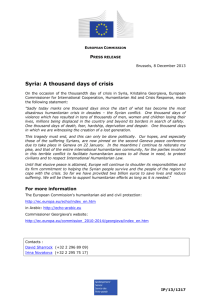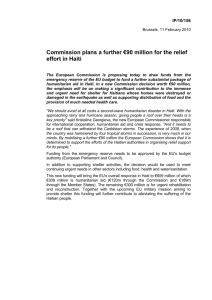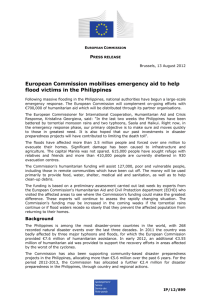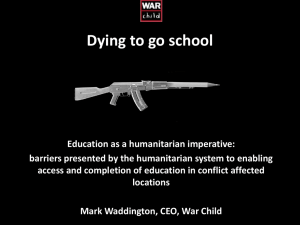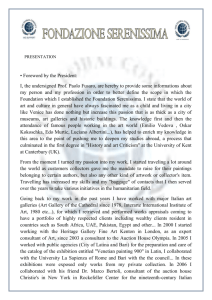DOC - Europa
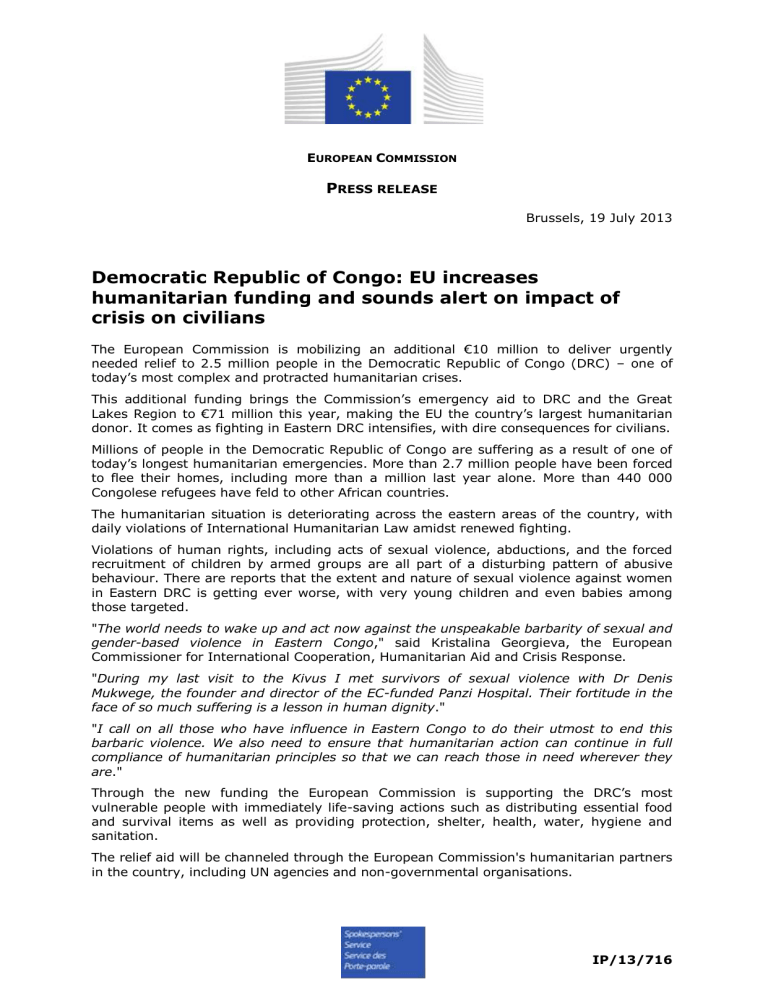
E UROPEAN C OMMISSION
P
RESS RELEASE
Brussels, 19 July 2013
Democratic Republic of Congo: EU increases humanitarian funding and sounds alert on impact of crisis on civilians
The European Commission is mobilizing an additional €10 million to deliver urgently needed relief to 2.5 million people in the Democratic Republic of Congo (DRC) – one of today’s most complex and protracted humanitarian crises.
This additional funding brings the Commission’s emergency aid to DRC and the Great
Lakes Region to €71 million this year, making the EU the country’s largest humanitarian donor. It comes as fighting in Eastern DRC intensifies, with dire consequences for civilians.
Millions of people in the Democratic Republic of Congo are suffering as a result of one of today’s longest humanitarian emergencies. More than 2.7 million people have been forced to flee their homes, including more than a million last year alone. More than 440 000
Congolese refugees have feld to other African countries.
The humanitarian situation is deteriorating across the eastern areas of the country, with daily violations of International Humanitarian Law amidst renewed fighting.
Violations of human rights, including acts of sexual violence, abductions, and the forced recruitment of children by armed groups are all part of a disturbing pattern of abusive behaviour. There are reports that the extent and nature of sexual violence against women in Eastern DRC is getting ever worse, with very young children and even babies among those targeted.
"The world needs to wake up and act now against the unspeakable barbarity of sexual and
gender-based violence in Eastern Congo," said Kristalina Georgieva, the European
Commissioner for International Cooperation, Humanitarian Aid and Crisis Response.
"During my last visit to the Kivus I met survivors of sexual violence with Dr Denis
Mukwege, the founder and director of the EC-funded Panzi Hospital. Their fortitude in the
face of so much suffering is a lesson in human dignity."
"I call on all those who have influence in Eastern Congo to do their utmost to end this barbaric violence. We also need to ensure that humanitarian action can continue in full compliance of humanitarian principles so that we can reach those in need wherever they
are."
Through the new funding the European Commission is supporting the DRC’s most vulnerable people with immediately life-saving actions such as distributing essential food and survival items as well as providing protection, shelter, health, water, hygiene and sanitation.
The relief aid will be channeled through the European Commission's humanitarian partners in the country, including UN agencies and non-governmental organisations.
IP/13/716
Background
The DRC currently has the lowest score on the United Nation’s Human Development Index
(HDI 2012) in terms of life expectancy, education and standard of living.
Access to people in need is often a challenge due to security or logistical obstacles. In order to get humanitarian aid to remote areas, the European Commission runs ECHO
Flight, the EU's humanitarian air service. Three of the four ECHO Flight airplanes are located in the DRC, where some areas can only be reached on foot or by air. In 2012, the
Commission allocated €7 million for ECHO Flight in the DRC.
A team of European Commission humanitarian experts is in the country monitoring the situation, assessing needs and overseeing the use of EU funds. The Commission has offices in Kinshasa, Bukavu and Goma. The European Commission is working with 31 humanitarian organisations that are best placed to deliver assistance in the DRC –
UNICEF, the International Committee of the Red Cross, UNOCHA and several NGOs.
For more information
The European Commission's humanitarian aid and civil protection: http://ec.europa.eu/echo/index_en.htm
Commissioner Georgieva's website: http://ec.europa.eu/commission_2010-2014/georgieva/index_en.htm
Contacts :
Irina Novakova (+32 2 295 75 17)
David Sharrock (+32 2 296 89 09)
2

